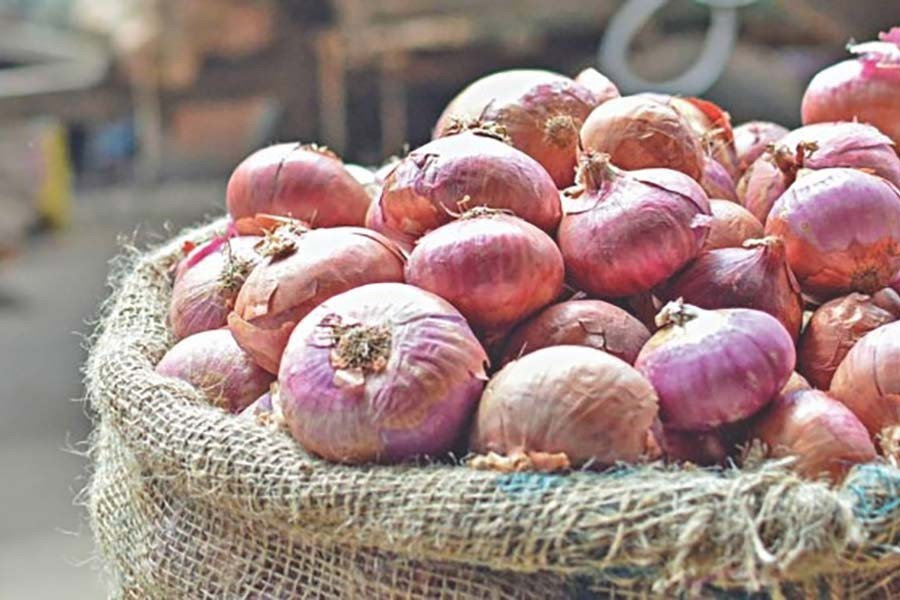
Published :
Updated :

Already out of the reach of the common people, the essential commodities are uncontrollably getting dearer. This time it is again onion, a vital item of the kitchen market, that has registered price increases beyond the bounds of affordability. Again, thanks to India's bumping up the export price of onion by more than 250 per cent, the wholesale prices of the imported variety of this bulb vegetable jumped by over 11 to 22 per cent within the span of a day (between last Saturday and Sunday) in the local market. As is the norm here, the indigenous variety of onion too saw a similar spike ranging from around 11 to 16 per cent over the same period of time. Additionally, the traders may use the ongoing political programmes as an excuse for pushing up the prices of onion among other items further.
At this point, one may recall that in August this year, the local market showed similar instability when India imposed 40 per cent duty on onion export. Ironically, the current price of onion is more than twice the rate (at Tk 65 a kg) that the government fixed just a month back (in September).What makes it clear from the unrestrained price hike of these essential commodities in defiance of government measures is that it has practically no control over the market of these everyday necessities. No doubt, it sends the wrong message to the unscrupulous operators of the essential market.
According to the department of agricultural extension, DAE, this year Bangladesh produced more than 3.5 million tonnes of onion. Unfortunately, 25 per cent of the onion so grown is reportedly lost to what is termed the so-called post-harvest damage to the crop. Needless to say, the loss so sustained by the perishable crop should also include its storage-related avoidable mismanagements. If this post-harvest damage could be minimised, and it should have been ideally the case, Bangladesh would not have to depend so much on onions from India, because the annual demand for this essential kitchen item is 2.8 million tonnes. In that case, the local market, too, would not have to behave so erratically in response to the price fluctuations of onions in the Indian market. As it happens so often, in the face of any big price hike of onion in its own market, the government of India resorts to various measures to control export of the item by imposing duty, or setting higher price, as in the present case, or slapping outright ban on its export.
But then why should Bangladesh's essential commodity market, particularly, in the case of onion, be so sensitive to the Indian government's actions to stabilise its own market? Should the government of Bangladesh also not have its own counter-measures to cushion the local market for onion or any other essential commodity against the policy changes in India regarding the export of their agricultural products? In this context, the government's latest move to import potato, the supply of which was said to be in surplus, points to the lack of correct information to guide the government to manage the market or respond to external market shocks relating to the supply of key essential commodities. In that case, the government should have a strong mechanism to monitor the market as well as adequate and reliable data on the existing stock and harvest forecast of commodities that are especially sensitive to external factors.


 For all latest news, follow The Financial Express Google News channel.
For all latest news, follow The Financial Express Google News channel.